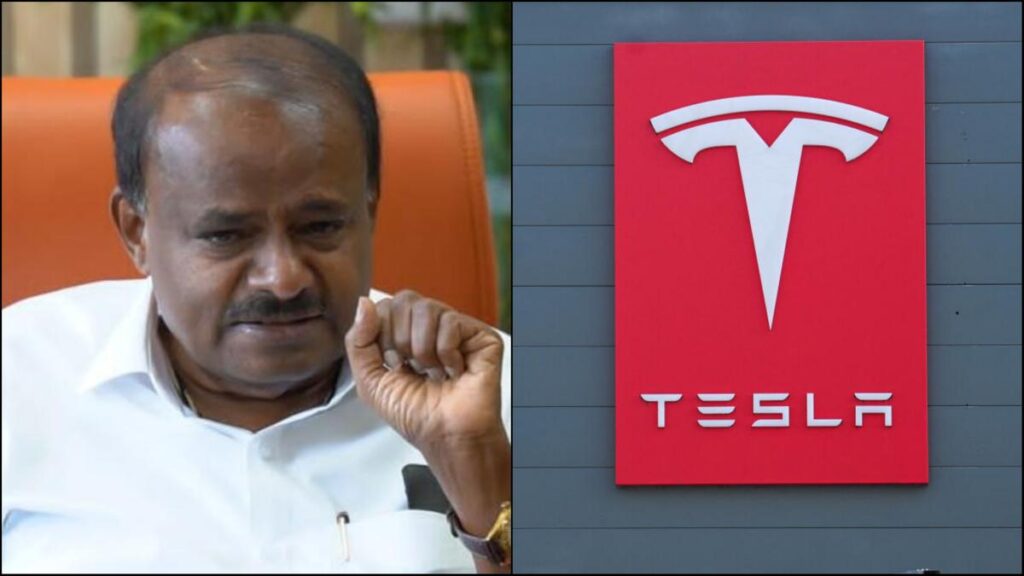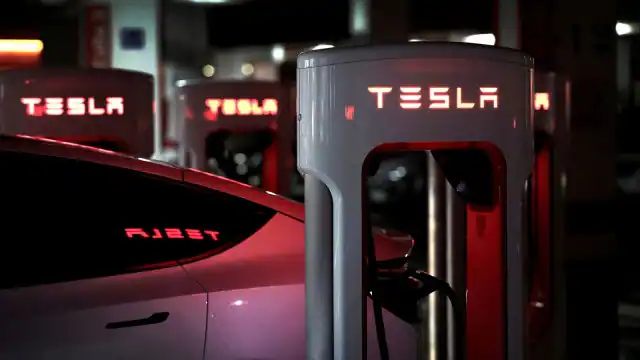Tesla Not Interested in Manufacturing Electric Cars in India Says HD Kumaraswamy 02 JUNE 2025

Tesla Not Interested in Manufacturing Electric Cars in India Says HD Kumaraswamy
In a significant development that could reshape India’s electric vehicle (EV) ambitions, Union Minister for Heavy Industries, HD Kumaraswamy, has stated that Tesla is currently not interested in manufacturing electric vehicles in India. This statement comes amid years of speculation, negotiations, and hopes that the American EV giant, led by Elon Musk, would set up production facilities in the world’s most populous country.
Table of Contents
Tesla’s India Journey: A Timeline of Hopes and Roadblocks
Tesla’s interest in the Indian market has been a subject of discussion for several years. In 2021, Elon Musk hinted multiple times on social media that Tesla was exploring entry into India. The company’s plan initially focused on importing vehicles to test market demand. However, India’s high import duties—up to 100% on fully built units—posed a major challenge for Tesla, which sought lower tariffs as a precondition for entering the market.
Despite several meetings between Tesla representatives and Indian government officials, including Prime Minister Narendra Modi’s reported discussions with Elon Musk in 2023 during a U.S. visit, concrete commitments from Tesla never materialized. The Indian government has consistently maintained that any tariff reductions would only apply if companies commit to local manufacturing.
Kumaraswamy’s Revelation
Speaking to the press, Kumaraswamy said:
“Tesla is not currently interested in setting up a manufacturing unit in India. There were discussions, but nothing concrete has emerged. As of now, they are not on board.”
This statement is especially significant as Kumaraswamy, a senior cabinet minister, is now directly involved in facilitating industrial investments under the new NDA government. His remarks imply a clear pause, if not an end, to the optimism surrounding Tesla’s entry into India as a manufacturing hub.
Implications for India’s EV Push
India has set ambitious targets for EV adoption, aiming for 30% of new vehicle sales to be electric by 2030. To achieve this, the government has rolled out incentives under the FAME (Faster Adoption and Manufacturing of Hybrid and Electric Vehicles) scheme and launched the PLI (Production Linked Incentive) scheme to attract global manufacturers.
A Tesla manufacturing facility in India could have provided a major boost—not only in terms of employment and technological transfer but also by encouraging EV adoption among consumers. Tesla’s absence might slow down the premium EV market’s development, which is already niche due to affordability constraints.
2026 Jeep Cherokee Debuts with Bold New Design and Hybrid Powertrain: Full Details Inside
Local Players to Fill the Void
With Tesla opting out for now, Indian automakers like Tata Motors, Mahindra & Mahindra, and foreign players like Hyundai and MG Motors may take the lead in shaping the EV space. Tata Motors, in particular, has emerged as the EV market leader in India, with its Nexon EV and Tiago EV seeing growing adoption.
Additionally, Ola Electric, backed by SoftBank and led by Bhavish Aggarwal, is making significant strides. The company recently announced plans to launch its first electric car by 2025 and is building a large battery manufacturing facility under the PLI scheme.

Policy Challenges and Way Forward
While India has a large and growing auto market, the policy framework still poses challenges for foreign manufacturers. High import duties, limited charging infrastructure, and state-level regulatory inconsistencies are major deterrents. Experts argue that while encouraging local manufacturing is a sound long-term strategy, the government might need to show more flexibility if it wants global tech giants like Tesla to participate in its EV revolution.
Industry Reactions
Reactions from the industry have been mixed. Some experts have expressed disappointment, noting that Tesla’s entry could have had a domino effect on EV investments. Others believe it’s an opportunity for Indian companies to step up and lead innovation in this space.
A senior analyst at an auto consultancy firm said:
“Tesla brings a certain brand prestige and ecosystem development. Its absence will be felt. But it also allows Indian players to mature without direct competition from the world’s most recognized EV brand.”
Conclusion
Tesla’s decision to not pursue manufacturing in India at this time may seem like a setback for the country’s EV aspirations, but it also underscores the complexities of balancing industrial policy with global business interests. As the Indian government looks to recalibrate its approach, the ball is now in the court of domestic manufacturers and alternative global investors to carry forward the EV mission.
For now, Kumaraswamy’s statement puts to rest the years of speculation surrounding Tesla’s India plans—but in the ever-evolving world of technology and geopolitics, the door may not be closed forever.
